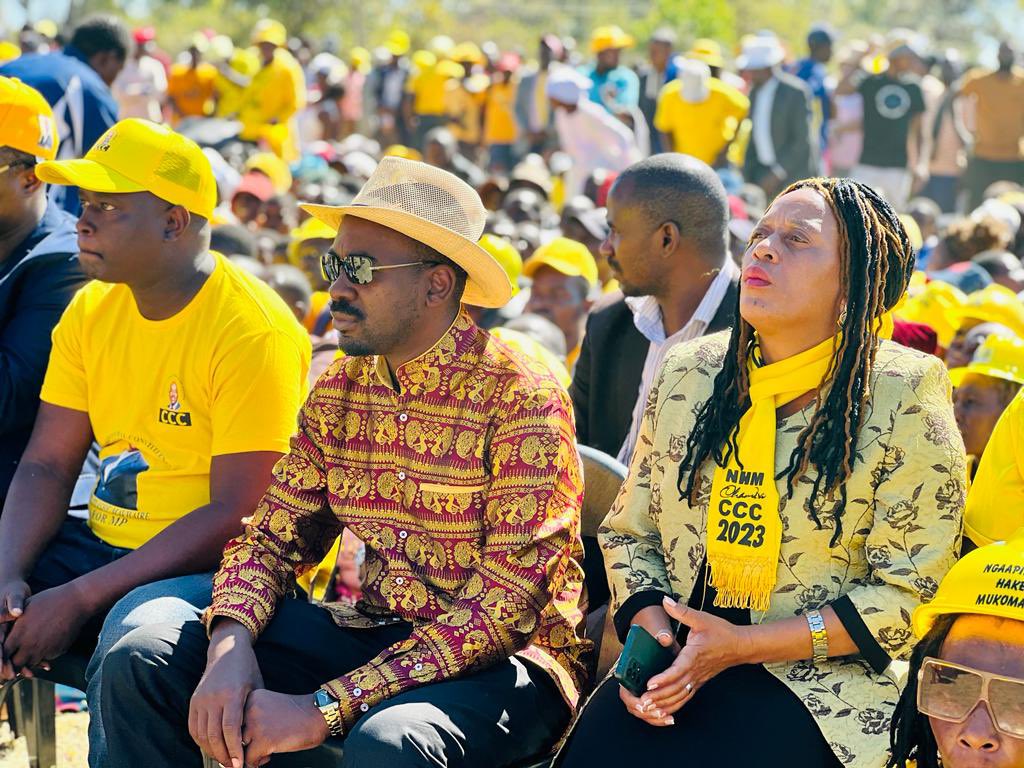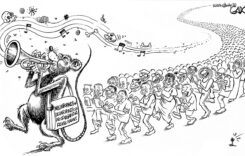The Speaker of Parliament, Jacob Mudenda, wrote to the Zimbabwe Electoral Commission (ZEC) announcing vacancies in 15 seats held by Citizens Coalition for Change (CCC) Members of Parliament after they were recalled by Sengezo Tshabangu, who said he was Secretary-General of CCC despite denials by CCC leader Nelson Chamisa.
What loopholes allowed this to happen?
The lack of clear organisational structures in the CCC, which Chamisa has held up as part of the party’s “strategic ambiguity” has left the CCC open to a disputable situation where people can claim to hold certain positions in the movement.
Chamisa says there’s no confusion as he is the only one who can confirm any such claim. He accuses the Speaker of Parliament, a Politburo member of President Emmerson Mnangagwa’s ruling party, of playing politics to help drive ZANU-PF towards a two-thirds control of parliament.
A two-thirds majority will give ZANU-PF parliamentary powers to effect some constitutional changes without requiring support from the opposition.
But how was CCC able to contest elections?
There are no laws in Zimbabwe that compel political parties to register in order to
legally exist. The only only obligatory registration required is with the election management body for purposes of fielding candidates and contesting elections.
The Zimbabwe Electoral Commission (ZEC) obliged to recognise “any political organization” – that is an association of persons set out to secure the election of one or more of its members to the position of State President or to be a member of a local authority or Parliament.
According to the Electoral Act, a political organisation should have at least:
- a minimum number of 500 members as set by ZEC.
- members from at least five of the country’s ten provinces.
- objectives that are consistent with the principles of democracy and the rule of law.
- Commitment to non-violence
What about organisational disputes in parties?
In cases of organisational disputes, and the absence of clear protocols on handling internal contestations, aggrieved parties can approach the court to resolve the issues.
Under what grounds can a parliamentary seat become vacant?
Section 129 of the Zimbabwe Constitution a seat can become vacant on:
- Dissolution of Parliament;
- Written resignation notice by a member to the President of the Senate or to the Speaker of Parliament.
- Member ceases to qualify for registration as a voter
- Being absent from their seat for 21 consecutive days
- certified to be mentally disordered or intellectually handicapped
For Zimbabwe, the most commonly used clause has been Section 129 (1) (k), which applies when a member of parliament ceases to belong to the political party under which sponsored their candidacy.
What does Parliament require to recognise communication from a political party/ movement?
In 2015 when MDC-T have evoked Section 129 (1) K to remove MPs who were deemed to no longer represent the party’s interests, The Speaker of Parliament said: “I must reiterate as I have done in a previous ruling that the notification to the Speaker by the party that a member has ceased to represent its interest in the National Assembly and Parliament is all that is required at law to create a vacancy and for the Speaker to declare the seat vacant”.
What prevents a seat declared to be vacant from being filled?
If legal proceedings are launched to deal with the matter, there will be delays in filling the declared vacancies until the courts have delivered a final ruling.
What if the courts rule in favour of the recall?
The Zimbabwe Electoral Commission (ZEC) will resume the necessary proceedings to complete the filling in of the vacant seats by fielding nominations and holding by-elections for the available seats.
Sources
Veritas
Parliament of Zimbabwe
Speaker’s Ruling – 17th March 2015 – 17 Vacancies in seats held by former MDC-T MPs
Four Vacancies declared by Parliament during 5th May 2020 Sittings
National Assembly Hansard 10 October 2023
Related Content
Do you want to use our content? Click Here












